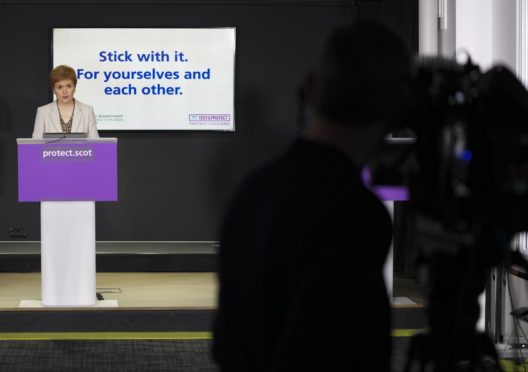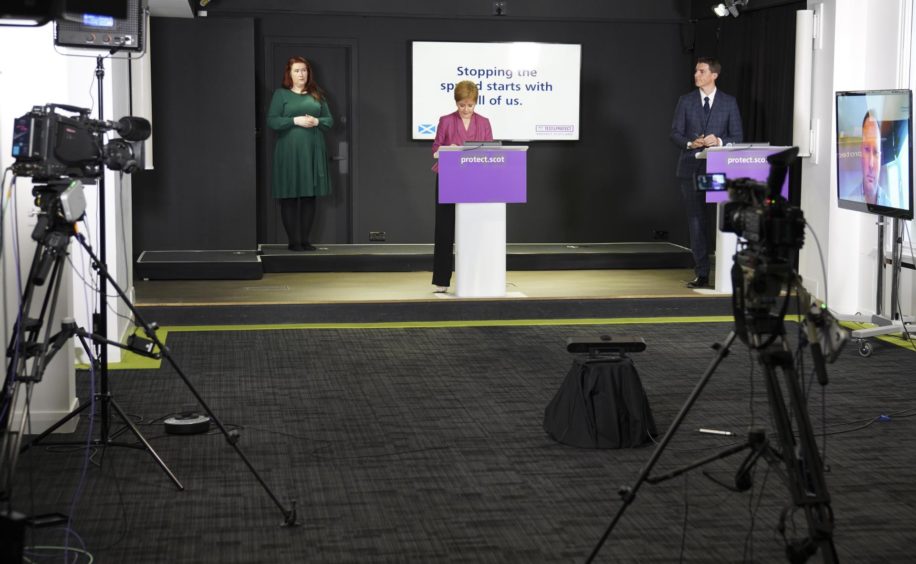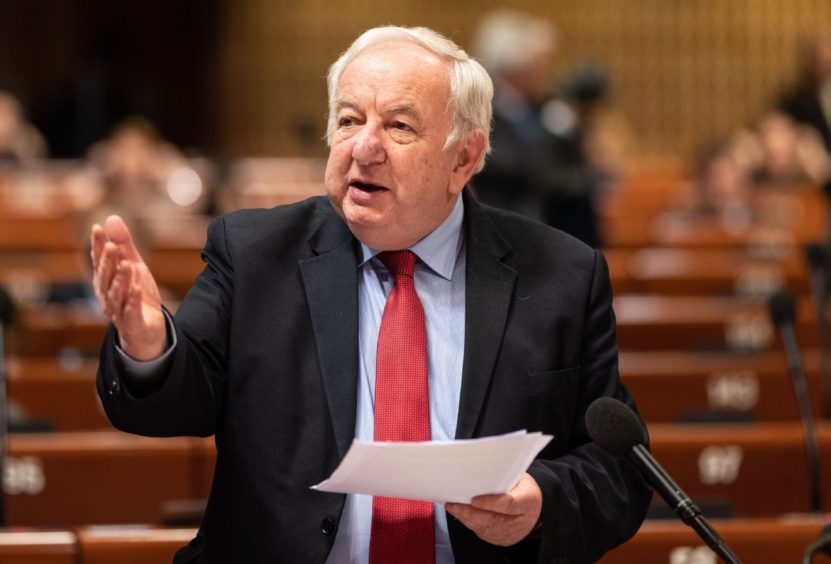Nicola Sturgeon will take a step back from the Scottish Government’s regular coronavirus briefings during the run up to May’s Holyrood election.
The SNP leader said she does not want to “abuse” her position as first minister so will withdraw from the broadcasts ahead of the vote – but could still make appearances for major announcements, including at Parliament.
Opposition parties have argued Ms Sturgeon’s regular appearances at the briefing could give her party an unfair advantage in the lead up to the election, with some politicians suggesting the first minister has previously used the broadcast for political gain.
Ms Sturgeon told MSPs at the Scottish Parliament’s Covid-19 committee that the public would “see more” of national clinical director Jason Leitch and chief medical officer Dr Gregor Smith during the election period.
In a response to a question from Scottish Labour’s Monica Lennon, Ms Sturgeon said: “We haven’t come to a final detailed decision on this right now. Already the daily briefings are happening less frequently, I haven’t done one this week.
“I remain first minister, and ministers remain ministers, so we have to be accountable during a health crisis and have to have the ability to communicate directly with the public.
“I am a democrat and I understand the importance of level playing fields in elections and I will act appropriately. You will undoubtedly not have me doing daily briefings every day the way I have been doing them previously.
“But if there are big decisions that we are having to make during the election period then I have a duty to communicate to the public what they are.
“It’s open to parliament to say that I should do that in parliament rather than at a daily briefing and those discussions will be open.”
A breach of impartiality?
TV watchdog Ofcom has dismissed claims that the briefings were used for political purposes after receiving four complaints about the issue.
Ms Sturgeon has in the past used the slot to accuse the UK Government of “negligence” in the face of Russian interference, to criticise Boris Johnson’s switch to a ‘stay alert’ lockdown slogan as “vague” and “imprecise”, and to hit out at his former aide, Dominic Cummings.
The departures from the coronavirus topic, which were often as a result of questions from journalists, saw Labour peer Lord Foulkes call on Ofcom to investigate the broadcasts, which he believes should instead be carried out by a public health official.
Lord Foulkes suggested the format of the briefings “constitutes an outrageous breach of the impartiality rules” as Scotland prepares for next year’s Holyrood elections and called on the watchdog to make a ruling over the issue.
The broadcasting regulator assessed 16 hours of the briefings filmed between September and December last year and said it found no issues that warranted an official investigation under the Broadcasting Code.
In the ruling, Ofcom said: “We considered that the first segment of the first minister’s update briefings primarily focused on factual and statistical information on public health, including information about the handling of the coronavirus crisis in Scotland and the legal restrictions and measures that were being put in place to tackle it.
“We took into account all the programmes considered in this assessment were broadcast during a time when positive coronavirus cases were on the rise.”


